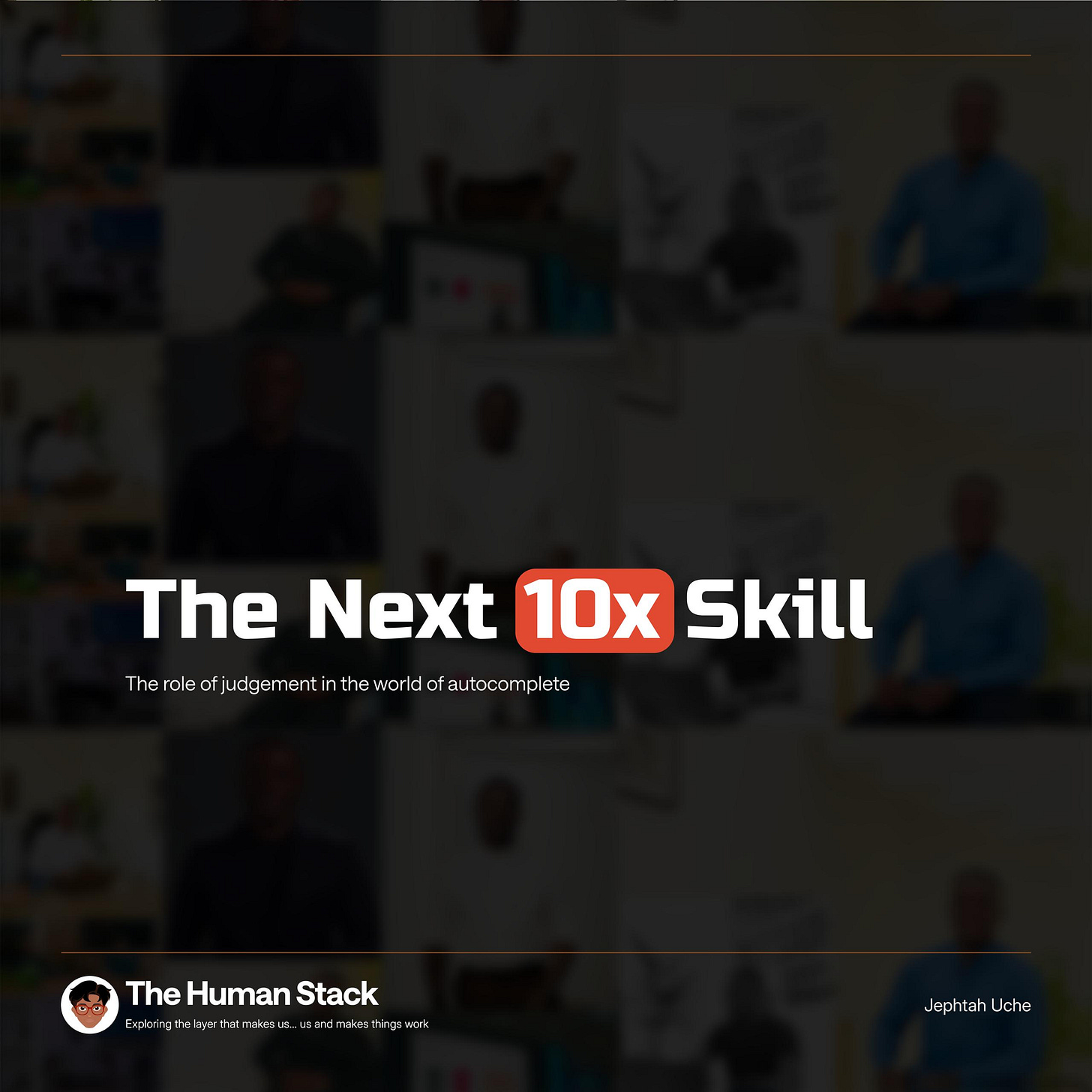Technical Judgment Is the Next 10x Skill
Judgment in a world of autocompletes
A few years ago, I had the opportunity to work worked with an engineer who was, by all traditional metrics, a beast.
Clean code? Check.
Lightning speed? Check.
Terminal set up like he hacked the Pentagon for fun? Check.
Give him a task, and within 48 hours he’d respond with a pull request, a 60-line commit message, and a Slack message that started with “so I made a few improvements…”
Problem was: he didn’t solve the problem.
He had rather solved twelve adjacent problems elegantly, masterfully, unnecessarily.
The bug was that users couldn’t reset their password because the code they received wasn’t working when they tried using it.
He built a fully decoupled auth service with biometric fallback support.
For a product with 47 users.
I remember looking at his PR like: Sir… nobody asked for this.
Here’s what I learnt that day and what I have always preached: brilliance without judgment is actually just expensive energy.
And in today’s world where the tools are even faster, frameworks are fancy, and GPT can write your tests while you sleep, technical judgment is the new 10x skill.
Wait. So what is technical judgment?
It’s the invisible skill no one puts on their resume.
It’s not about knowing the best solution - it’s about knowing what actually matters right now.
It’s asking things like:
Is this problem real, or just annoying?
Do we need a scalable system or just a working one?
Is this a clever idea or am I just bored?
It’s that moment when your inner voice whispers:
We could rewrite this in Rust… but also, we could go outside and touch grass.
The best engineers I’ve worked with aren’t just good at coding.
They’re good at not coding the wrong thing.
They know when to slow down, when to zoom out, when to say, “Actually, this should live in a Notion doc, not our repo.”
I once asked a staff engineer why he didn’t refactor something messy.
He said, “Because I’ll be gone in 3 months, and no one after me will care.”
Was it heroic? No.
Was it wise? Absolutely.
That’s judgment.
And it’s rare.
Here’s why it matters more now than ever
AI is coming for everything that’s fast, repeatable, and syntactically correct.
You can prompt your way to boilerplate.
You can auto-generate a landing page.
You can ship something that looks like software in a weekend.
But you can’t prompt your way to taste.
You can’t autocomplete why something matters.
You can’t Copilot your way through hard tradeoffs, team context, or legacy debt wrapped in ego.
In short: the future is full of tools.
Your leverage is judgment.
So what do we do?
If you lead teams → model judgment. Reward it.
If you hire → look for people who ask good questions, not just give fast answers.
If you’re building → slow down long enough to ask:
“Am I solving the problem or just performing competence?”
Because the next decade won’t be about who codes faster.
It’ll be about who decides better.
As usual, here are my closing thoughts:
Your ability to choose well, consistently, under pressure, with context.
That’s what makes you valuable.
That’s what can’t be cloned.
And that, my friend, is the real 10x.
Seems like we are moving towards the age of thinkers yet again.



👏👏👏👏
Solid stuff 👏🏿👏🏿